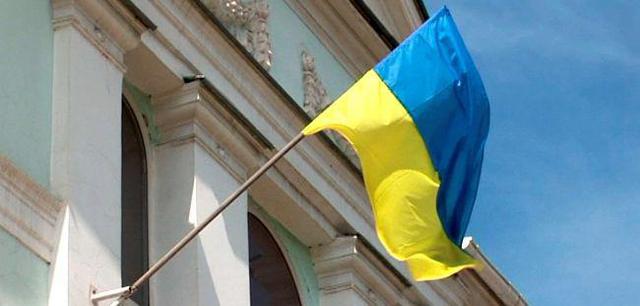
Crimean and Russian Authorities Ban Leader of Crimean Tatars From His Homeland
Publication: Eurasia Daily Monitor Volume: 11 Issue: 78
By:

On April 19, the leader of the Crimean Tatar movement, Mustafa Cemilev, returned home to his native Crimea, following his month-and-a-half-long trip abroad. During his trip, he had met with politicians and officials in Europe and in the United States, gave presentations at the North Atlantic Treaty Organization (NATO) headquarters in Brussels and at the United Nations Security Council in New York, as well as conducted emergency meetings with political leaders in Poland, Turkey and Jeddah (Saudi Arabia) about the predicament of the Crimean Tatars following Crimea’s annexation by Russia in mid-March. However, Cemilev’s car was stopped at a checkpoint in Armyansk on the newly drawn border between Crimea and mainland Ukraine, where the border patrol told him that he was not allowed to enter the peninsula (https://ru.krymr.com/content/article/25355364.html).
Since Cemilev’s name was not originally among those 321 people who were previously declared persona non grata in Crimea (https://qha.com.ua/321-kisilik-kara-listede-kirimoglu-yok-131534tr.html), this was an unexpected turn of events. Hundreds of Crimean Tatars had arrived at the border carrying Ukrainian and Crimean Tatar flags to greet Cemilev. According to Lily Muslimova—the press-secretary of the Mejlis, the Crimean Tatar representative body—the crowd waited nervously on the other side as Cemilev and Mejlis head Refat Chubarov, who met him in Kyiv with two other Mejlis representatives, were kept at the checkpoint. After a 90-minute clarification of the situation over the phone with Crimean officials, the border patrol finally let Cemilev and the others enter the breakaway territory (qtmm.org, April 19).
When Cemilev arrived at the Mejlis building in Simferopol, the first thing he asked was for the Ukrainian flag to be hoisted back to where it flew before the annexation (https://censor.net.ua/photo_news/281904/nad_zdaniem_medjlisa_v_simferopole_podnyat_flag_ukrainy_foto). Early the next morning, police arrived and asked the Mejlis to take down the Ukrainian flag. Mejlis workers rejected this request and told the police officers that they were a community organization and, therefore, they could keep the flag (https://www.newsru.com/russia/21apr2014/krym_tatary.html). The same day, around 11 a.m., approximately 30 para-military self-defense units in camouflage uniforms arrived at the Mejlis building with a bus and a ladder to take down the Ukrainian flag (https://15minut.org/article/neizvestnye-napali-na-zdanie-medzhlisa-izbili-zhenschin-i-snjali-ukrainskij-fla). While this was happening, three women (ages varying from 35 to 65) who work at the Mejlis came outside and tried to stop the so-called self-defense units from pulling down the Ukrainian flag (https://qha.com.ua/samooboronovtsi-siloi-snyali-flag-ukraini-so-zdaniya-medjlisa-135262.html). All three women were subsequently manhandled and pushed around by the camouflaged men—which was partially captured by the building’s outdoor security cameras (https://www.youtube.com/watch?v=YbtsSiI4SbI).
On April 21, Sergei Aksyonov, the self-proclaimed prime minister of Crimea, stated that Cemilev’s name was indeed among those on the black list, whose entry into Crimea is prohibited. He further reminded Cemilev and his supporters that they were now living in the legislative domain of the Russian Federation, and anyone who breaks the law in Crimea will be punished to the full extent to the Russian laws (https://ru.krymr.com/content/article/25356283.html).
On April 22, when Cemilev was leaving Crimea for a meeting in Kyiv, the border patrol again stopped his car. This time, they presented him with an “Act of notice for unrecognized entry” which stated that Mustafa Cemilev—who was born in Ay Serez, Crimea, on November 13, 1944—was “a foreign national” and citizen of Ukraine, and was banned from entering the Russian Federation, including Crimea, for five years (https://ru.krymr.com/content/article/25357764.html).
Later that day, Constantine Baharev from the Federal Migration Service of the Russian Federation told reporters this might have been a mistake because Cemilev’s name was not on the black list. He also told the media that the “Act of Notice” did not have any stamps and was not valid. Based on this claim, on April 22, Refat Chubarov held a press conference and called on the Crimean authorities to disband the self-defense units, which, he alleged, were responsible for the discrimination Cemilev suffered at the border checkpoints (https://qha.com.ua/rusya-kirimoglu-nun-kirim-a-giris-yasagi-gecersiz-131906tr.html).
However, on April 23, in another about face, Olga Koviditi—a former deputy prime minister of Crimea and now appointed a representative of Crimea in the Federation Council of Russia (upper chamber of Russia’s parliament)—confirmed Cemilev’s five-year entry ban. “Even the Criminal Code of Ukraine holds those who incite ethnic conflict liable, so now Cemilev will have five years to think about all those statements coming from his mouth against the current authorities in Crimea, and come to his senses,” said the senator (https://qha.com.ua/kovitidi-nadeetsya-chto-djemilev-za-5-let-odumaetsya-135348.html). Consequently, this 71-year-old national hero of the Crimean Tatar nation, who spent 15 years in Soviet jails and who held a 303-day hunger strike—the longest in world history—so that he and his people would be allowed the “right to return” to their historical homeland, has been officially declared a “foreign national,” no longer allowed to step foot in Crimea until 2019 (https://qha.com.ua/ktmm-nin-039-kirim-da-hukuksuzlugun-tirmanisina-iliskin-039-bildirisi-131909tr.html).
On April 23, the Prosecutor’s Office of the Republic of Crimea also issued an official warning, this time to Chubarov, the chairperson of the Mejlis, for “inciting ethnic hatred and destabilizing the situation in the Crimean Republic” (https://qha.com.ua/chubarov-poluchil-predosterejenie-ot-prokuraturi-kovitidi-135346.html). The announcement also came from Senator Koviditi, who said “the joke was over” and that after what happened to Cemilev, Chubarov should draw appropriate conclusions for himself and adjust his behavior accordingly (https://argumentua.com/novosti/prokuratura-russkikh-okkupantov-v-krymu-ofitsialno-predupredila-refata-chubarova).
The same day, the state-owned Crimean Channel 10 “Krym” was instructed not to mention Cemilev’s and Chubarov’s names on the news (Author’s interview with Channel 10 journalist, April 23). Moreover, according to Cemilev, the Security Services of the Russian Federation (FSB) presented three options to those Crimean Tatars who continue to support him. The first option is their “willing” departure from Crimea; second, to expect law suits that could end up with long jail sentences for all; or third, to expect kidnappings and disappearances akin to those that happen in the North Caucasus (https://qha.com.ua/kirimoglu-kirim-tatar-milli-meclisini-bolmeye-calistilar-131953tr.html).
Ironically, all this took place one day after Russian President Vladimir Putin signed a decree on the rehabilitation of Crimean Tatars, who were deported by Joseph Stalin en mass from their homeland in 1944 (https://www.echo.msk.ru/blog/dubnov/1305458-echo/).
In reality, all these events validate Cemilev’s foreboding April 17 statement, when he told reporters that the Russian Federation is leaning toward a renewed deportation of Crimean Tatars from the peninsula. “The deportation of Crimean Tatars in 2014 is not going to be on cattle trains as it was in 1944, but [will] more likely [be] a softer option, as it was in 1783, when Imperial Russia seized the land from Crimean Tatars and destroyed the intelligentsia by assassinations, imprisonment, scare tactics, and intimidations, which paved the way for forced migrations” he warned (https://censor.net.ua/news/281575/rossiya_sklonyaetsya_k_deportatsii_krymskih_tatar_iz_poluostrova_djemilev).




